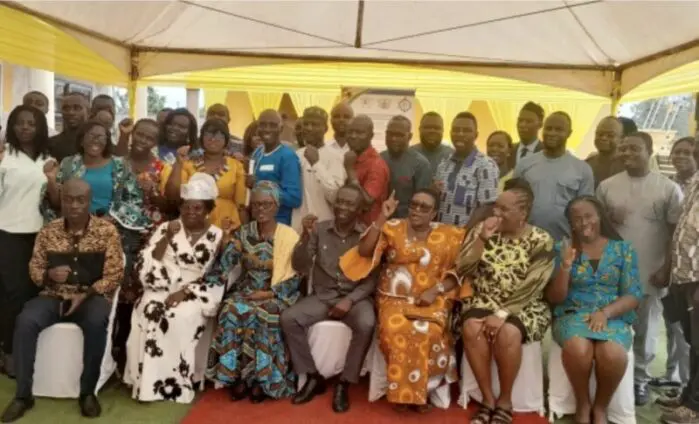By: Emmanuel Amoah
Ghana is enhancing Science, Technology, Engineering, and Mathematics (STEM) education by establishing resource centres across all 16 regions. These centres, currently 70% complete, are expected to significantly improve the teaching and learning of science, mathematics, and computing. They aim to equip Ghanaians with the skills to design innovative solutions for the nation’s development.
Olivia Serwaa Opare, Director of the Science Education Unit at the Ghana Education Service (GES), shared these developments during an interview with the Ghana News Agency at a five-day retreat for national STEM coordinators held in Adukrom, Eastern Region. The retreat fosters knowledge exchange among coordinators from regional, municipal, and district levels while promoting best teaching practices.
“Soon, every region will have its own STEM hub. These are under construction and nearing completion,” Mrs. Serwaa Opare confirmed. She also highlighted the government’s efforts to increase the supply of equipment and materials to support practical science and mathematics education, alongside periodic teacher and coordinator training.
According to Mrs. Serwaa Opare, Ghana’s STEM education has evolved, with lessons now focused on practical applications, including using the environment to teach science, mathematics, and computing. This approach has led to Ghanaian students winning several international STEM awards, including participation in the prestigious International Physics Olympiad in Russia.
Richard Arthur Payne, the Central Regional STEM Coordinator, emphasized that the training sessions have significantly improved educators’ understanding of mathematics, science, and the psychology of teaching. He credited the establishment of resource centres and frequent workshops with enhancing students’ performance through hands-on activities and direct interaction with scientific equipment.
“Students are excelling because they now have opportunities for practical engagement, which helps them better understand and appreciate mathematics and science,” Mr. Payne noted. He also called for more financial support to organize frequent camps for junior and senior high school students to deepen their practical knowledge.
James Kwesi Addison, an Emotional Intelligence Master Coach, stressed the importance of integrating emotional intelligence into STEM subjects, especially at the basic and secondary school levels. He advocated for incorporating emotional management into the curriculum to foster skills such as empathy, collaboration, teamwork, and active listening—attributes crucial for future success.
“Emotional stability is the foundation of strong academic performance. Students who excel academically tend to have well-regulated emotions,” Mr. Addison explained. He emphasized that coordinators and teachers, responsible for shaping the future workforce, should receive emotional intelligence training to enhance their effectiveness in guiding students.
During the five-day retreat, participants are expected to exchange best practices, visit schools, including those for students with disabilities, and explore new approaches to STEM education.






